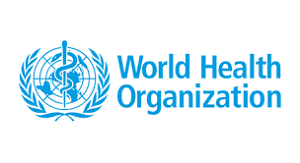Urgent Action Needed to Combat Rising Encephalitis Cases
The World Health Organization (WHO) and Encephalitis International have launched a crucial Technical Brief on encephalitis, identifying the disease as a growing global threat. The brief outlines key measures needed to improve prevention, data collection, surveillance, diagnostics, treatment, aftercare, and research innovation.
A Call for Investment and Awareness
“Encephalitis is a rising global concern. Without immediate attention and investment, more people will suffer needless deaths and disabilities,” said Dr. Ava Easton, Chief Executive of Encephalitis International.
Understanding Encephalitis and Its Impact
Encephalitis is a severe brain inflammation caused by infectious or autoimmune factors, affecting individuals of all ages, sexes, and ethnicities. The disease can result in permanent neurological damage and, in many cases, proves fatal.
This condition arises either from an infection directly invading the brain—such as Japanese Encephalitis and Scrub Typhus, which are more common in India—or from the immune system mistakenly attacking brain cells.
A 2024 survey reported 1,548 Japanese Encephalitis cases across 24 states and Union Territories in India, highlighting the disease’s widespread impact.
Urgent Recommendations from WHO and Encephalitis International
As reported by economictimes, WHO and Encephalitis International are urging policymakers, public health professionals, healthcare providers, and researchers to implement the brief’s recommendations. These efforts aim to reduce encephalitis-related deaths and disabilities worldwide.
Addressing Healthcare Gaps in Low-Income Regions
“WHO’s recognition of encephalitis as a global health threat is a pivotal moment. We must take decisive action to improve prevention, diagnosis, and care for those affected. The disease disproportionately impacts people in low-to-middle-income countries, where healthcare resources remain scarce,” emphasized Dr. Easton.
Improving Diagnosis, Treatment, and Care
According to Dr. Tarun Dua from the Brain Health Unit, Department of Mental Health, Brain Health, and Substance Use, the technical brief focuses on existing gaps in diagnosis, treatment, and patient care. Implementing these recommendations will help more individuals access the necessary medical support to lead healthy and fulfilling lives.
With increased awareness and global collaboration, the fight against encephalitis can gain momentum, ultimately saving lives and improving healthcare outcomes for affected individuals worldwide.























